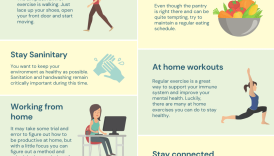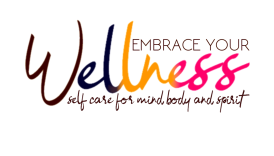Embracing Health: Tips for a Happier Life

In today’s fast-paced world, maintaining a healthy lifestyle can sometimes feel overwhelming. With endless information on health and wellness, it can be challenging to know where to start. However, focusing on essential aspects such as healthy eating, regular exercise, and mental well-being can set a strong foundation for a well-rounded life. Many people find that small changes lead to significant results. For example, my friend Sarah wanted to improve her energy levels. By simply incorporating wholesome meals and a regular workout routine into her week, she noticed a remarkable transformation in how she felt day-to-day. This blog will explore various practices that contribute to a healthier lifestyle, including:
- Embracing Health: Tips for a Happier Life
- Importance of Healthy Eating
- Balanced Diet
- Meal Planning
- Benefits of Regular Exercise
- Cardiovascular Health
- Strength Training
- Importance of Mental Health
- Stress Management
- Mindfulness Practices
- Quality Sleep for Well-being
- Sleep Hygiene
- Relaxation Techniques
- Maintaining Hydration
- The Importance of Hydration
- Tips for Staying Hydrated
- The Role of Social Connections
- The Benefits of Strong Social Connections
- Ways to Cultivate Social Connections
- Importance of Regular Health Check-ups
- Preventive Screenings
- Health Monitoring
- Stress Reduction Techniques
- Physical Activity
- Meditation
- Balancing Work and Personal Life
- The Importance of Work-Life Balance
- Strategies for Achieving Balance
- Balanced diet
- Benefits of exercise
- Mental health importance
- Quality sleep
- Hydration
- Social connections
- Regular health check-ups
Join us as we delve deeper into these vital components and discover how they interconnect to enhance overall well-being.
Importance of Healthy Eating
Transitioning into the realm of healthy eating, it becomes clear that what we consume plays a crucial role in our overall health. A balanced diet not only provides the essential nutrients our bodies need but also boosts energy levels and improves mood.
Balanced Diet
A balanced diet is one that includes a variety of foods in the right proportions. It’s often easier than it sounds! Here’s a quick look at what a balanced plate might entail:
- Fruits and Vegetables: Aim for a colorful variety to ensure a diverse range of vitamins.
- Whole Grains: Opt for brown rice, quinoa, and whole grain bread for fiber and energy.
- Proteins: Include lean meats, eggs, legumes, or plant-based proteins like tofu.
- Dairy: Choose low-fat or dairy alternatives for calcium and vitamin D.
For instance, when my brother decided to revamp his diet, he started meal planning. It not only saved him money but also time during busy weekdays.
Meal Planning
Meal planning is a simple yet effective way to stay on track with healthy eating. Here are some tips:
- Set a Weekly Menu: Choose recipes that you enjoy and create a shopping list accordingly.
- Prep Ahead: Dedicate a few hours on the weekend to prepare meals in advance.
- Mix It Up: Rotate dishes to keep your meals interesting and flavorful.
With these strategies, making healthy choices becomes a cinch, allowing you to take control of your nutrition and well-being!
Benefits of Regular Exercise
After laying a strong foundation with healthy eating, it’s time to turn our attention to the numerous benefits of regular exercise. Engaging in physical activity not only enhances fitness but also contributes to overall health and well-being.
Cardiovascular Health
One of the most significant benefits of exercise is its positive effects on cardiovascular health. Activities like running, cycling, and swimming help strengthen the heart and improve circulation. Here’s what regular cardio does for your body:
- Reduces Blood Pressure: Keeping your heart in shape helps lower hypertension.
- Improves Cholesterol Levels: Boosts HDL (good cholesterol) while lowering LDL (bad cholesterol).
- Enhances Endurance: Consistent exercise increases stamina, making daily tasks easier.
When my colleague Jen started jogging regularly, she noticed not just weight loss but also a remarkable reduction in her stress levels.
Strength Training
In addition to cardiovascular exercises, incorporating strength training into your routine is crucial. It comes with its own array of benefits, such as:
- Increased Muscle Mass: Building strength helps prevent age-related muscle loss.
- Boosted Metabolism: More muscle means more calories burned, even at rest.
- Improved Bone Health: Resistance training strengthens bones, reducing the risk of osteoporosis.
My sister began a strength training program last year and found it empowering, reporting stronger muscles and increased confidence. By embracing both cardio and strength training, individuals can achieve a comprehensive fitness regime that benefits both body and mind!
Importance of Mental Health
With a solid foundation of healthy eating and regular exercise established, it’s crucial to dive into the significance of mental health. Just as our physical health needs attention, so does our mental well-being. A positive mindset can drive us toward achieving our health goals and maintaining balance in life.
Stress Management
Effective stress management is essential for maintaining mental health. Chronic stress can lead to anxiety, disrupted sleep, and various physical health issues. Here are some effective strategies to manage stress:
- Deep Breathing Techniques: Take a moment to focus on your breath; inhale deeply and exhale slowly.
- Exercise: Physical activity is a fantastic stress reliever, whether it’s a brisk walk or a session at the gym.
- Social Support: Share your feelings with friends or family to lighten emotional burdens.
I remember when my friend Mike was overwhelmed with work. By practicing these techniques, he learned to handle his stress better and regain his focus.
Mindfulness Practices
Incorporating mindfulness practices into daily life can significantly enhance mental well-being. Mindfulness helps individuals remain present and aware, reducing anxiety and improving emotional regulation. Here are some practices to consider:
- Meditation: Regular meditation sessions can promote relaxation and clarity.
- Yoga: The combination of movement and breathing fosters mindfulness and stress relief.
- Gratitude Journaling: Writing down things you’re grateful for helps shift focus from stressors to positive aspects of life.
After I started journaling, I noticed a shift in my perspective, and it helped me appreciate the small moments. By prioritizing mental health alongside physical health, we nurture a more balanced, fulfilling life.
Quality Sleep for Well-being
Now that we’ve discussed the importance of mental health, it’s essential to highlight the critical role of quality sleep in overall well-being. Good sleep is not just about quantity but also quality, and it significantly impacts energy levels, mood, and cognitive function.
Sleep Hygiene
Establishing good sleep hygiene can make a world of difference in sleep quality. This involves creating a conducive environment and forming healthy habits around sleep. Consider these tips:
- Consistent Sleep Schedule: Go to bed and wake up at the same time every day to regulate your body’s internal clock.
- Comfortable Sleep Environment: Ensure your bedroom is dark, quiet, and cool. Invest in a comfortable mattress and pillows.
- Limit Screen Time: Reduce exposure to screens at least an hour before bedtime to minimize blue light, which can disrupt melatonin production.
When I began following a consistent sleep schedule, I noticed I woke up feeling more refreshed and ready to take on the day.
Relaxation Techniques
Incorporating relaxation techniques into your routine can also enhance sleep quality. Here are some effective methods:
- Progressive Muscle Relaxation: Tense and then relax each muscle group, starting from your toes and working up to your head.
- Aromatherapy: Using essential oils like lavender can create a calming environment conducive to sleep.
- Reading: Engaging in a relaxing book can help wind down the mind before sleep.
I often find solace in reading light fiction before bed, which helps clear my thoughts from the day. Prioritizing quality sleep not only refreshes the mind but also supports emotional stability and better health!
Maintaining Hydration
As we continue our journey toward optimal health, let’s dive into another fundamental aspect: maintaining hydration. Proper hydration is often overlooked but is vital for physical and mental performance. Water makes up about 60% of our body, and staying hydrated is essential for numerous functions, from regulating temperature to ensuring organ functionality.
The Importance of Hydration
Understanding why hydration matters can motivate us to keep our fluid intake in check. Here are some key benefits:
- Boosts Energy Levels: Dehydration can lead to fatigue; even mild dehydration can slow you down.
- Improves Cognitive Function: Staying hydrated enhances focus, memory, and overall brain performance.
- Supports Digestion: Water is necessary for effective digestion and nutrient absorption.
I recall a time when I felt sluggish during my afternoon meetings. After committing to drinking more water, my energy levels surged.
Tips for Staying Hydrated
Here are some simple strategies to help maintain hydration throughout the day:
- Carry a Water Bottle: Keep a reusable water bottle with you to remind you to sip throughout the day.
- Set Reminders: Use phone alerts or apps to remind you to drink water regularly.
- Infuse Your Water: Add slices of fruits or herbs, such as lemon or mint, to enhance flavor and make hydration enjoyable.
By actively maintaining hydration, you equip your body and mind to thrive in daily activities!
The Role of Social Connections
As we transition from the importance of hydration, let’s explore the often underestimated impact of social connections on our overall well-being. Humans are inherently social creatures, and fostering strong relationships can greatly enhance our mental and emotional health.
The Benefits of Strong Social Connections
Having a supportive social network can provide numerous advantages, including:
- Increased Happiness: Spending time with friends and family can boost mood and create a sense of belonging.
- Reduction of Stress: A reliable support system can help buffer against stress and anxiety, enabling us to cope more effectively.
- Improved Longevity: Research suggests that strong social ties can be linked to a longer, healthier life.
I remember when I moved to a new city; it was my friends who kept my spirits high through regular calls and visits.
Ways to Cultivate Social Connections
To nurture your social life, consider these tips:
- Join Community Groups: Participate in local clubs or online communities where you can meet like-minded individuals.
- Schedule Regular Meet-ups: Make it a habit to catch up with friends or family regularly, whether in person or virtually.
- Volunteer: Engaging in community service not only helps others but also allows you to connect with new people.
By prioritizing social connections, you cultivate a supportive network that enriches your life and enhances your overall health!
Importance of Regular Health Check-ups
Building on the value of social connections, it’s essential to discuss another cornerstone of a healthy lifestyle: regular health check-ups. These visits to healthcare professionals play a crucial role in maintaining optimal health and early detection of potential issues.
Preventive Screenings
Preventive screenings are one of the key components of health check-ups. They can help identify health risks before symptoms arise. Here are some common screenings to consider:
- Cholesterol and Blood Pressure Checks: Important for assessing heart health.
- Cancer Screenings: Such as mammograms, Pap tests, or colonoscopies, which can detect cancers early.
- Diabetes Screening: Blood glucose tests help identify diabetic conditions before they escalate.
When my dad had his regular check-up and screenings, they caught a concern early, allowing for prompt treatment.
Health Monitoring
On top of screenings, regular health check-ups allow for ongoing health monitoring. Benefits include:
- Tracking Vital Signs: Keeping tabs on weight, heart rate, and other key indicators over time.
- Medication Management: Ensuring that prescribed medications are effective and safe.
- Personalized Health Advice: Healthcare providers can offer guidance based on individual health trends.
I always feel reassured after my annual check-up, knowing I have a clearer picture of my health status. By committing to regular health check-ups, individuals take proactive steps toward a healthier future!
Stress Reduction Techniques
Now that we’ve discussed the significance of regular health check-ups, let’s shift gears to focus on stress reduction techniques. Managing stress is vital for overall well-being, as it helps maintain both mental health and physical health. Two powerful methods for alleviating stress are physical activity and meditation.
Physical Activity
Engaging in physical activity is one of the most effective ways to combat stress. Exercise releases endorphins, which are natural mood boosters. Here are some ways to incorporate physical activity into your routine:
- Choose Enjoyable Activities: Whether it’s dancing, hiking, or cycling, find what you love.
- Make it Social: Invite friends to join you for workouts or classes.
- Stay Consistent: Aim for at least 30 minutes of moderate exercise most days of the week.
After starting regular Zumba classes with friends, I found my stress levels significantly decreased, all while having fun.
Meditation
In addition to physical activity, meditation offers a calming antidote to daily stressors. This practice encourages mindfulness and fosters a sense of inner peace. Here are some meditation tips to get started:
- Set Aside Time Daily: Even 5-10 minutes can make a difference.
- Find a Quiet Space: Choose a serene environment free from distractions.
- Explore Different Techniques: Try guided meditations, breathing exercises, or visualization.
When I first tried meditation, I was amazed by how quickly I could center myself and reduce anxiety. By integrating both physical activity and meditation into daily life, individuals can cultivate a peaceful and stress-free mindset!
Balancing Work and Personal Life
Following our exploration of stress reduction techniques, it’s important to address another crucial aspect of a fulfilling life: the balance between work and personal life. In today’s fast-paced environment, finding this equilibrium can be challenging, yet it is vital for overall well-being.
The Importance of Work-Life Balance
Achieving a healthy work-life balance has numerous benefits, such as:
- Reduced Stress: A clear boundary between work and personal time helps lower anxiety levels.
- Improved Relationships: Prioritizing personal time fosters stronger connections with family and friends.
- Enhanced Productivity: Taking breaks and respecting personal time can lead to increased focus and productivity at work.
When I noticed my work consuming my evenings and weekends, I made a conscious decision to implement boundaries by designating my evenings as tech-free hours, allowing me to reconnect with hobbies and loved ones.
Strategies for Achieving Balance
To help establish a better work-life balance, consider these strategies:
- Set Clear Boundaries: Define your work hours and stick to them.
- Prioritize Self-Care: Make time for activities that nourish your mind and body.
- Schedule Quality Time: Treat personal commitments with the same importance as work meetings.
By actively working towards a balanced lifestyle, individuals can enjoy a more harmonious and fulfilling life, paving the way for both professional success and personal happiness!





